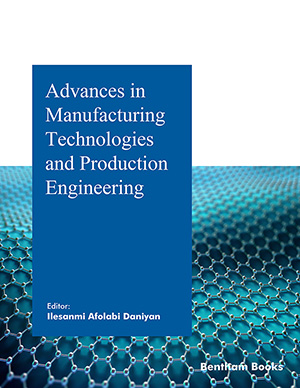[1]
H.F. Sheikh, I. Ahmad, and D. Fan, "An Evolutionary Technique for Performance-Energy-Temperature Optimized Scheduling of Parallel Tasks on Multi-Core Processors", IEEE Transactions on Parallel &
Distributed Systems,, vol. 27, pp. 668-681, 2016.
[2]
B. Keshanchi, A. Souri, and N.J. Navimipour, "An improved genetic algorithm for task scheduling in the cloud environments using the priority queues: Formal verification, simulation, and statistical testing", J. Syst. Softw., vol. 124, pp. 1-21, 2016.
[3]
D. Yun, C.Q. Wu, and Y. Gu, "An Integrated Approach to Workflow Mapping and Task Scheduling for Delay Minimization in Distributed Environments", J. Parallel Distrib. Comput., vol. 84, pp. 51-64, 2015.
[4]
L.T. Peterson, and J.A. Mccombe, Scheduling heterogenous computation on multithreaded processors.. U.S. Patent 20120324458 A1, 2012.
[5]
F. Lotfifar, and H.S. Shahhoseini, "A Low-Complexity Task Scheduling Algorithm for Heterogeneous Computing Systems", Asia International Conference on Modelling & Simulation. IEEE, 2009pp. 596-601
[6]
A. Akkasi, "“Genetic algorithm for task scheduling in heterogeneous
distributed computing system”", Inter. J. Sci. Eng. Res.. Vol. 6, pp. 1338-1345, 2015.
[7]
V. David, Method for executing tasks in a critical real-time system.. WO Patent /2014/167197, 2014.
[8]
Y. Zhong, Research on Intelligent Optimization Method and Its Application., Zhejiang University, 2005, pp. 19-30.
[9]
H. Topcuoglu, S. Hariri, and M.Y. Wu, "Task scheduling algorithms for heterogeneous processors ", Heterogeneous Computing Workshop. IEEE, 1999pp. 3-14
[10]
M.I. Daoud, and N. Kharma, "A hybrid heuristic–genetic algorithm for task scheduling in heterogeneous processor networks", J. Parallel Distrib. Comput., vol. 71, pp. 1518-1531, 2011.
[11]
M. Abdullahi, M.A. Ngadi, and S.M. Abdulhamid, "Symbiotic Organism Search optimization based task scheduling in cloud computing environment", Future Gener. Comput. Syst., vol. 56, pp. 640-650, 2016.
[12]
X. Wang, Y. Wang, and H. Zhu, "Energy-efficient Task Scheduling Model based on MapReduce for Cloud Computing using Genetic Algorithm", J. Comp., vol. 7, no. 12, 2012.
[13]
S.G. Ahmad, C.S. Liew, and E.U. Munir, "A hybrid genetic algorithm for optimization of scheduling workflow applications in heterogeneous computing systems", J. Parallel Distrib. Comput., vol. 87, pp. 80-90, 2015.
[14]
S.G. Ahmad, E.U. Munir, and W. Nisar, "“PEGA: A Performance
Effective Genetic Algorithm for Task Scheduling in Heterogeneous
Systems”", IEEE, International Conference on High Performance
Computing and Communication & 2012 IEEE, International Conference
on Embedded Software and Systems. IEEE,, 2012pp. 1082-1087
[15]
R. Singh, "“An optimized task duplication based scheduling in parallel
system”", Int. J. Intell. Syst. Appl., Vol
, vol. 8, pp. 26-37, 2016.
[16]
Y. Xu, K. Li, and L. He, "A Hybrid Chemical Reaction Optimization Scheme for Task Scheduling on Heterogeneous Computing Systems", IEEE Trans. Parallel Distrib. Syst., vol. 26, pp. 3208-3222, 2015.
[17]
R. Aron, I. Chana, and A.A. Abraham, "Hyper-heuristic approach
for resource provisioning-based scheduling in grid environment", J. Supercomput., vol. 71, pp. 1427-1450, 2015.
[18]
W. Wang, K. Zhu, and L. Ying, "MapTask Scheduling in MapReduce With Data Locality: Throughput and Heavy-Traffic Optimality", IEEE/ACM Transactions on Networking , vol. 24, pp. 190-203, 2016.
























